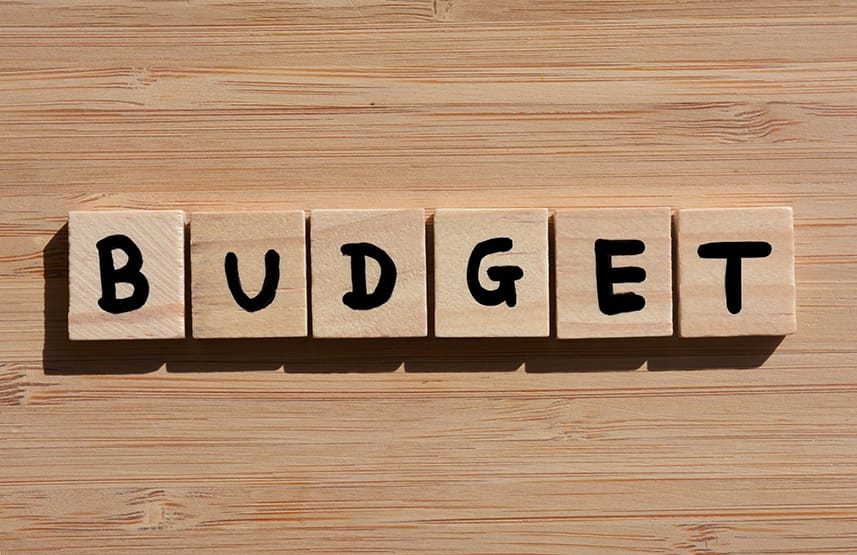If you think that you need a complete guide on how to budget money on low income, think again.
Budgeting isn’t hard in practice. It just requires some discipline that most lack because they don’t think about budgeting the right way.
If you’re low on income, the importance of budgeting is naturally higher. And emphasis must be given to some of the primary disciplines of budgeting. This article is tailor-made for the low-income earners, so it aims to do just that…
The great thing here is that if you live on a low income, budgeting can do wonders for you.
You don’t have to be stressed because you can’t get a raise or a higher-paying job. Following these 4 tips on how to budget money on low income will make you feel like your income has increased.
So, let’s get to it then…
1. Save First, Spend Later

“Don’t save what is left after spending; spend what is left after saving.”
~ Warren Buffett
Warren Buffett, considered by many the greatest investor in the world, is known to give advice on investing, rather than saving money. But here, he breaks the pattern.
His advice about spending what’s left after saving may seem a little unnecessarily hardcore for some, but for low-income earners, it should be a no-brainer.
When you first start budgeting, you may lack the discipline that keeps you from exceeding your budgets. If you have put aside (preferably, in another savings account), the money that theoretically remains after covering all your expenses, then you simply cannot go over your budgets.
2. Account for Every Little Thing

When it comes to budgeting, it’s important that you account for every expense or income, no matter how insignificant they may seem.
It’s not a problem to be vague about some expenses that are less predictable. But you need to not fall into the trap of leaving out regular expenses just because they’re small.
The insignificant and irregular expenses can add up over time and become more significant. More so, they can affect your savings efforts big time.
So, try to avoid this common mistake induced by laziness or carelessness if you’re low on income, lest your budgeting efforts go to waste.
3. Keep your Plan Up to Date

As time goes by, circumstances change. You may get married, have children, get a raise, change jobs, buy a home, etc.
If your budget remains static and you never make any changes to it, it will start being less effective.
It’s essential that your budgeting plan responds to such changes in circumstances. In other words, your budget must be like a living organism that gets adapted to the changes in your life.
So, be alert of any big changes that make updating your plan necessary.
If you have a saving goal, try to monitor what comes in and goes out and be ready to adjust your budgets to make sure that you keep saving the same amount of money every month.
It is possible that a long-time non-recurring expense or income starts showing signs of becoming recurring.
For example, you may get some extra income by working online once or twice per year. What if you start receiving that extra cash monthly? If that happens, it deserves to be accounted for and then you will have the option of adjusting some of your budgets to make them less strict.
The opposite can occur as well (it’s actually more possible). If an infrequent expense becomes more regular, then you will have to make a budget for it and adjust the other ones until you keep saving the same amount of money that you need to reach your goals in time.
4. Be Ambitious with your Goals

When it comes to saving money, don’t make the mistake to aim low.
Having set ambitious goals that you want to reach with your saving efforts will keep you motivated to never fall behind.
Just think about something that you always wanted to do. It has to be ambitious for you, not other people. Even buying a better car can be considered ambitious if you always wanted to do that but never thought it possible.
With budgeting, everything is possible. Think of a goal and estimate how much it will cost you to achieve it. Then get to work…
Bonus Tip

And here’s a bonus tip on how to budget money on low income for those who are going to budget for the first time.
The old method of budgeting suggests grabbing a piece of paper and a pen and writing down both your expenses and income for the month. Then you fill an envelope with cash for each expense you want to create a budget for.
But in this age, we are past that. It could be more practical for you to simply use a budgeting app or spreadsheet.
Some even find this less demanding because a budgeting app can ask you to create a budget for every expense, set a recurring monthly income, and then it will simply do all the calculations for you.
That way, the only thing you will need to do is open the app every time you buy something and tell it how much you spent and on what.
So, take advantage of the plethora of apps and spreadsheets that are available to simplify the budgeting process.
Now, I hope you found these 4 tips on how to budget money on low income insightful and I wish you success in saving money!
Also, it will mean a great deal to me if you share this article with others.
Thank you for taking the time to read this and I’ll see you the next time!
Disclaimer: This information should not be viewed as financial advice. You should consult a financial advisor or do your own due diligence before you invest. The owner of this website and author of this article are not to be held liable for any undesired result by anyone who uses this information that is provided here in any way.

